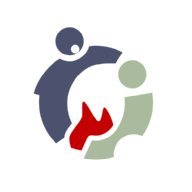Aikuma
Project
Our vision is for a world that sustains thousands of living languages
Our mission is to design innovative ways of strengthening local oral cultures
Proposition 1:
The society of the future could include thousands of local oral languages, each spoken alongside a language of wider communication in a situation of stable bilingualism.
Proposition 2:
Campaigns to "save languages" using outside methods and technologies disenfranchise linguistic minorities and repeat the paternalism that led to the world's language crisis in the first place.
Proposition 3:
Acts of respect and recognition in our communities, workplaces, and schools create spaces where linguistic minorities are safe to continue using their languages, and where children are motivated to learn.
Proposition 4:
Strong indigenous and immigrant communities enrich our common life with unique perspectives on human experience and our changing world, and we all come to belong in a deeper way.
Who we are
The Aikuma Project is coordinated by Steven Bird and Nicole Curtin. Aikuma means "meeting place" in Usarufa, a language of Papua New Guinea. The Usarufa people were the first to trial the Aikuma app in 2012.
Many others have contributed over the years, including: Robyn Perry, Manuel Maqueda (co-founders), Florian Hanke, Oliver Adams, Mat Bettinson, Nadia Chaney, Katie Gelbart, Lauren Gawne, Haejoong Lee, Isaac McAlister, and Jennifer Pinkerton.
Origins
Papua New Guinea 2010-12
The Aikuma Project arose in the highlands of Papua New Guinea. Steven invited the community to a gathering – aikuma in the local Usarufa language – and we shared a feast before settling into an afternoon of storytelling. This set the scene for a week of recording stories using a mobile app named Aikuma in honour of this foundational event. The team went on to record stories in Brazil, Nepal, and other places, and we published several academic articles.
Following this experience, Steven spent time in the Bay Area promoting the Aikuma app. What would it take for the technology to go viral and capture the world’s vanishing languages?
San Francisco 2014-15
Steven worked with Robyn and Manuel, and over a period of six months we reflected on the thinking summarised on the facing page and shifted emphasis from technology to community. This became the Aikuma Project.
We examined the vision of other organisations to “halt the tide of language loss” or to “stem the tide of language loss”, missions that felt either unrealistic or uninspiring, before setting on our own vision of “a world enriched by thousands of oral cultures.”
We observed the growing interest in storytelling around us, but saw that it all took place in English. For hundreds of other languages there were accessible speakers with access to an unbroken tradition of oral culture. Nadia Chaney joined us and we designed a format for storytelling shows in the original language, with the goal of “celebrating and connecting.” We held our inaugural “Treasure Language Storytelling” event at the New Parkway Theater in Oakland on 13 December 2015.
Darwin 2016-19
In 2016 Steven resigned from his tenured academic position and moved to the Top End of Australia to live in a remote community. He began learning to speak Kunwinjku, a language with just 2,000 speakers. Through the patience and generosity of local people, he came to participate in the local lifeworld and to experience oral culture. He witnessed the harms caused by technology-driven engagements and saw new possibilities for outsiders to promote language vitality through small acts of recognition, including language learning and storylistening.
He produced several Language Parties in Darwin and promoted the format across Australia and beyond. By the time of the UN International Year of Indigenous Languages in 2019, the format had been tried out in six countries: Australia, UK, France, Zimbabwe, Philippines, and the USA.
Post 2019, the COVID era has been a period of reflection and consolidation, and in 2023 we are rebuilding our program in alignment with the UN International Decade of Indigenous Languages 2022–32, and with Australia’s five point decadal plan which includes a call for truth-telling and celebration.

